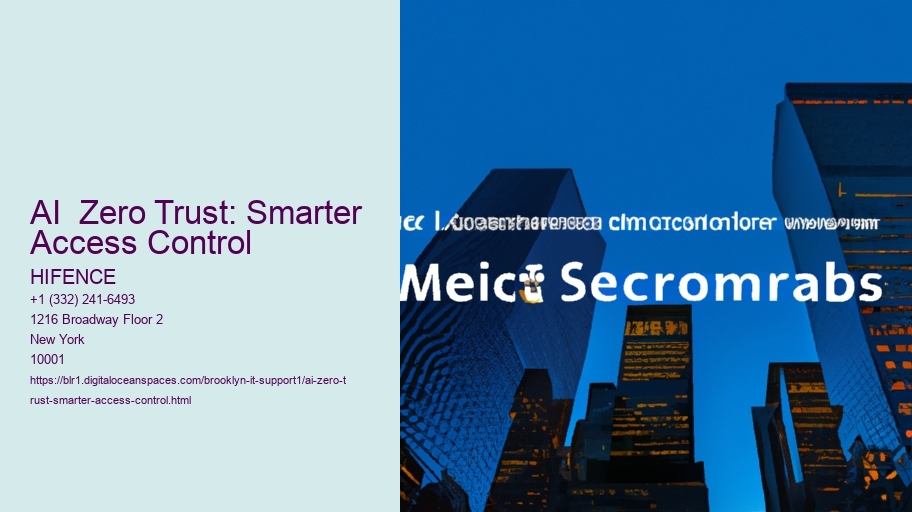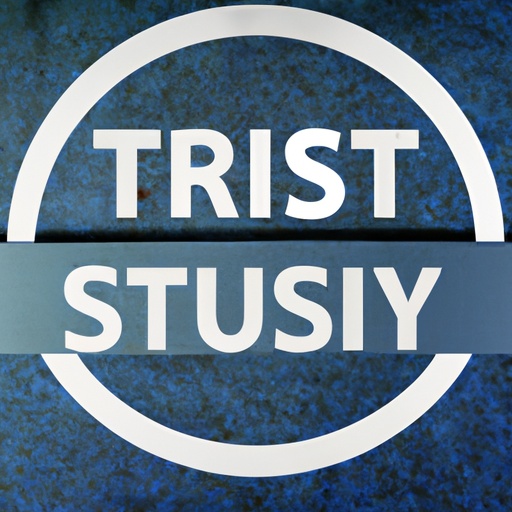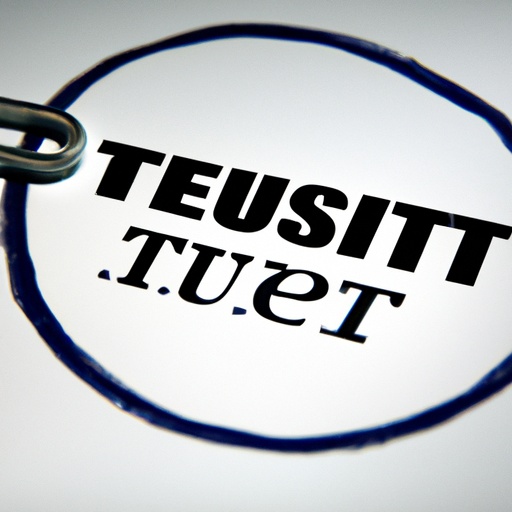
AI Zero Trust: Smarter Access Control
Understanding Zero Trust principles is, like, super important when youre talking about AI, especially when it comes to who gets to access what. zero trust security . Think of it this way, you wouldnt just let anyone wander around your house, right? Even if they seem nice! Same goes for AI systems and data. managed services new york city The core idea behind Zero Trust is "never trust, always verify." Its not enough to just check someones ID at the front door (traditional security). You gotta keep checking every time they try to open a new room, or like, use a different appliance.
In the AI context, this means we cant just assume a user or even another AI system is legit just because they were authorized once. We need to continuously authenticate and authorize them based on a bunch of different factors, like their location, the device theyre using, and what theyre actually trying to do. Makes sense, no?
This smarter access control becomes especially crucial when AI starts making decisions. If a rogue AI, or a compromised account, gains access to sensitive data or critical functions, the consequences could be disastrous! Implementing Zero Trust principles helps to limit the blast radius of a breach, cause even if someone gets in, they wont be able to move freely throughout the system. Its about creating layers of security checkpoints so that even if one fails, others will catch the intruder. Its a pain, but its so worth it!
The Role of AI in Enhancing Zero Trust: Smarter Access Control
Zero Trust, its like, the new buzzword. But its not just hype, yknow? Its a real shift in how we think bout security. Instead of trustin everyone inside the network, Zero Trust assumes no one is trusted by default, whether theyre inside or outside! And thats where AI comes barging in, makin things way more sophisticated.
AI can seriously supercharge Zero Trust implementations. Think about it: traditional access control relies on rules, right? Like, "if you have this credential, you get access". But AI? It can analyze user behavior, device posture, location, time of day, and a million other things to determine if access is truly warranted. So, say someone usually logs in from New York, but suddenly theyre tryin to log in from Russia at 3 AM? AI can flag that as suspicious and deny access, even if they got the right password.

AI can also learn from past attacks and adapt its security policies. Its not just reactin to known threats; its predictin and preventin new ones. This is way more effective than just relying on signature-based security, which is, you know, always a step behind. Plus, AI can automate a lot of the tedious tasks involved in Zero Trust, like continuously monitoring access requests and identifying anomalies. This frees up security teams to focus on more strategic initiatives.
Of course, its not a silver bullet. AI needs data to learn, and if the data is biased or incomplete, the AI will be too. And you gotta have people who understand how to train and maintain the AI systems. But overall, AI offers a powerful way to enhance Zero Trust and create a more secure environment! Its a game changer, I tell you what.
AI-Powered Identity and Access Management (IAM) is like, the brainy upgrade your Zero Trust security needs, seriously. See, Zero Trust is all about never trusting anyone, always verifying, right? But manually verifying every single access request? Thats a lotta work, and honestly, kinda slow.
Thats where AI comes in, like a super-smart assistant. AI-powered IAM uses machine learning to learn normal user behavior. It watches what you do, where you typically access things from, even the time of day you usually work. Then, it flags anything that seems off. Suddenly someone from accounting is trying to download the CEOs unreleased cat photo collection at 3 AM from a Russian IP address?
This makes access control way smarter. Instead of just relying on passwords and roles (which can get compromised), AI adds a layer of behavioral analysis. Its constantly assessing risk, adapting to new threats, and even automating access decisions based on learned patterns. This helps reduce risk of breaches and makes sure only the right people get access to the right resources, at the right time. It is, like, the future of security, I think!
AI and Zero Trust: Smarter Access Control with Adaptive Authentication!

Zero Trust, its like, the new cool kid on the security block. Basically, its saying "trust no one," which sounds kinda harsh, but its smart!
Adaptive authentication powered by AI is like having a really, really observant security guard. It doesnt just check your ID (your password). It looks at everything else! Where are you logging in from? What time is it? What device are you using? Have you ever logged in from this place before? Is your behavior normal?
If everything looks good, you get in no problem. But if something seems off, like youre suddenly logging in from Russia when youre usually in Kansas, the system might ask for extra verification, like a code sent to your phone. Or maybe it will just block the login entirely. The AI learns your normal behavior over time, so it gets better and better at spotting suspicious activity.
Its way better than just relying on passwords, which, lets face it, are often terrible. Adding AI to the mix makes Zero Trust not just secure, but also user-friendly. Aint that neat? It allows for a more seamless and, well, adaptive experience.
AI for Continuous Monitoring and Threat Detection: Smarter Access Control
Zero Trust. Sounds kinda intense, right? Like nobody gets in without proving themselves, constantly. And thats the idea! But how do you actually do that, especially when your network is, like, a messy plate of spaghetti code and cloud services? check Well, thats where AI comes strutting in, all confident and helpful.

Think about it. Regular security is, often, just reacting. managed service new york Something bad happens, then bam, alarms! But AI, especially when used for continuous monitoring, is proactive. Its constantly watching everything, learning whats normal, and spotting the weird stuff before it becomes a full-blown crisis. Were talkin subtle changes in user behavior, unusual data access patterns, that kinda thing.
And its not just about spotting threats; its about smarter access control.
Its like having a super-smart, super-vigilant security guard who never sleeps and remembers everything. Of course, it aint perfect. Theres always the chance of false positives, and you gotta train the AI right, or itll be useless. But, for Zero Trust, AIs potential for continuous monitoring and threat detection is huge! It makes access control way smarter and more effective. Amazing!
Implementing AI Zero Trust: Challenges and Best Practices for Smarter Access Control
Okay, so, AI and Zero Trust? Sounds like something outta a sci-fi movie, right? But its actually becoming super important, especially when you think about how much sensitive data AI systems are handling these days. The basic idea of Zero Trust is, like, never trust anyone, always verify. Which makes sense, duh. But applying that to AI is where things get...tricky.
One big challenge is understanding what “normal” AI behavior even is. AI models can be complex and, ya know, unpredictable. How do you know when somethings a legitimate request versus a malicious attack if you cant even baseline its operation properly? It aint easy!
Then theres the whole issue of data provenance. Whered the data come from that the AI is using? Is it trustworthy? If the datas been tampered with, the AI could be compromised, and you wouldnt even know it until its too late. Talk about a security nightmare!
But dont despair! There are best practices. First, you gotta have really good data governance. Know where your data is, whos accessing it, and how its being used. Second, implement strong authentication and authorization for everything. Dont assume anythings secure just cause its "inside" the network. And third, constantly monitor AI activity for anomalies. Use other AI, ironically, to help detect suspicious behavior!
Implementing AI Zero Trust is definitely a journey, not a destination. Its gonna require a lot of experimentation and fine-tuning, but its essential if we want to keep our AI systems – and the data they protect – safe and sound!
AI Zero Trust: Smarter Access Control, and use cases, oh my!
So, youve heard of Zero Trust, right? Like, never trust, always verify? Good. Now, picture that, but with a sprinkle of AI magic. Thats kinda what were talkin about here. Instead of just relying on static rules for who gets access to what, were letting AI learn and adapt to normal behavior. Think of it as a super smart security guard who knows everyones routines and instantly flags anything fishy.
Use cases? Oh, theres a ton! Imagine a doctor trying to access patient records from a weird location at 3 AM. A regular system might just say "password correct, come on in!" But an AI-powered Zero Trust system? Itd be like, "Hold up! Doctor Bob never works at 3 AM from a coffee shop in Siberia. Something aint right!" And it might ask for extra verification, or even block access entirely!
Another example, think about a salesperson downloading a massive amount of data right before quitting. Suspicious, right? AI could detect this unusual behavior and trigger an alert, preventing a potential data breach. Its not just about blocking bad guys, its about spotting insider threats too!
The beauty of it is, the AI learns over time. It gets better at recognizing legitimate users and identifying anomalies. Its not perfect, and there will always be some false positives, but its a huge step up from just relying on usernames and passwords. It makes access control way smarter, and way more secure, even if sometimes it makes you jump through an extra hoop or two! But hey, better safe than sorry, right!
Okay, so like, the future of access control? With AI? And Zero Trust? Its kinda mind-blowing if you really think about it. For years, weve relied on, you know, passwords and maybe a keycard or two. But honestly, thats, like, so easily bypassed. Phishing scams, lost cards, people sharing passwords - its a total security nightmare!
Zero Trust, for those who dont know, basically means trusting no one. Not even people inside the company. Everyone has to prove they are who they say they are, every single time they try to access something. And thats where AI comes in, see?
Imagine an AI system thats constantly learning. Its analyzing your behavior patterns - how you type, where you usually log in from, the time of day you access certain files. If something seems off, even a little bit, access is denied. Its is way smarter than just asking for a password!
Were talking facial recognition that cant be fooled by a photo. Voice biometrics that are darn near impossible to mimic. And AI thats constantly adapting to new threats and learning from past mistakes. Its not just about keeping the bad guys out, its about making sure the good guys are who they say they are, every single time.
Of course, theres concerns. Privacy, mostly. And making sure the AI doesnt make mistakes and lock out legitimate users. But if we get it right, AI-driven access control with Zero Trust principles could make our digital lives way, way more secure. Its a game changer, I tell ya!